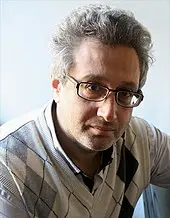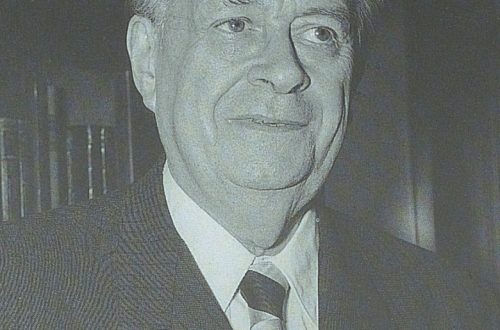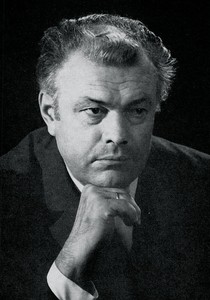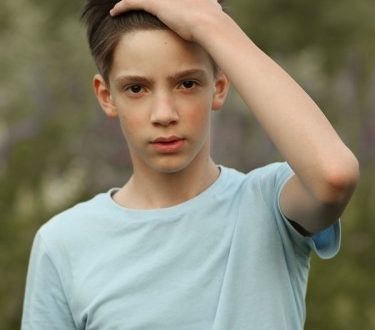
Boris Yoffe |
Boris Yoffe
The work of the composer, violinist, conductor and teacher Boris Yoffe deserves, of course, special attention of admirers of academic music, it belongs to the best examples of modern composer’s thought. Joffe’s success as a composer can be judged by who performs and records his music. Here is an incomplete list of well-known performers of Yoffe’s music: Hilliard Ensemble, Rosamunde Quartet, Patricia Kopachinskaya, Konstantin Lifshits, Ivan Sokolov, Kolya Lessing, Reto Bieri, Augustine Wiedemann and many others. Manfred Aicher released on his ECM label Boris Yoffe’s CD Song of Songs performed by the Hilliard Ensemble and the Rosamunde Quartet. Wolfgang Rihm has repeatedly praised Joffe’s work and wrote part of the text for the booklet of the Song of Songs disc. In July this year, the Wolke publishing house published in German a book of articles and an essay by Boris Joffe “Musical Meaning” (“Musikalischer Sinn”).
It seems that Joffe can be considered a quite successful composer, one might think that his music is often heard and known to many. Let’s take a look at the real state of affairs. Does Yoffe’s music play a lot at contemporary music festivals? No, it doesn’t sound at all. Why, I will try to answer below. How often does it play on the radio? Yes, sometimes in Europe – especially “Song of Songs” – but there were almost no programs completely devoted to the work of Boris Yoffe (with the exception of Israel). Are there many concerts? They happen and take place in various countries – in Germany, Switzerland, France, Austria, the USA, Israel, Russia – thanks to those musicians who were able to appreciate Yoffe’s music. However, these musicians themselves had to act as “producers”.
The music of Boris Yoffe is not yet very well known and, perhaps, only on the way to fame (one has only to hope and say “maybe”, because there were many examples in history when even the best of its time was not appreciated by contemporaries). Musicians who passionately appreciate Joffe’s music and personality – in particular violinist Patricia Kopatchinskaya, pianist Konstantin Lifshitz and guitarist Augustin Wiedenman – claim his music with their art in concerts and recordings, but this is only a drop in the ocean of thousands of concerts.
I would like to try to answer the question why the music of Boris Yoffe is especially rarely heard at contemporary music festivals.
The problem is that Yoffe’s work does not fit into any framework and direction. Here it is necessary to say right away about the main work and creative discovery of Boris Yoffe – his “Book of Quartets”. Since the mid-90s, he has been writing daily from a quartet piece that fits on one sheet of music without tempo, dynamic or agogic indications. The genre of these plays can be defined as “poem”. Like a poem, each piece must be read (in other words, the musician must determine the tempo, agogics, and dynamics from the music), and not just played. I don’t know anything of the kind in modern music (aleatoric doesn’t count), but in ancient music it’s all the time (in Bach’s Art of Fugue, there are not even symbols for instruments, not to mention tempo and dynamics). Moreover, it is difficult to “shove” Yoffe’s music into an unambiguous stylistic framework. Some critics write about the traditions of Reger and Schoenberg (English writer and librettist Paul Griffiths), which, of course, seems very strange! – others recall Cage and Feldman – the latter is especially noticeable in American criticism (Stephen Smolyar), which sees something close and personal in Yoff. One of the critics wrote the following: “This music is both tonal and atonal” – such unusual and non-standard sensations are experienced by listeners. This music is as far from the “new simplicity” and “poverty” of Pärt and Silvestrov as it is from Lachenman or Fernyhow. The same goes for minimalism. Nevertheless, in Joffe’s music one can see its simplicity, its newness, and even a kind of “minimalism”. Having heard this music once, it can no longer be confused with another; it is as unique as the personality, voice and face of a person.
What is not in the music of Boris Yoffe? There is no politics, there are no “topical problems”, there is nothing newspaper and momentary. There are no noises and abundant triads in it. Such music dictates its format and its thinking. I repeat: a musician playing Joffe’s music must be able to read notes, not play them, because such music requires complicity. But the listener must also participate. It turns out such a paradox: it seems that music is not forced and breathing with normal notes, but you should listen to music especially carefully and not be distracted – at least during a one-minute quartet. It’s not that difficult: you don’t have to be a big expert, you don’t have to think about a technique or a concept. To understand and love the music of Boris Yoffe, one must be able to listen directly and sensitively to the music and proceed from it.
Someone compared Joffe’s music with water, and another with bread, with what is first of all necessary for life. Now there are so many excesses, so many delicacies, but why are you thirsty, why do you feel like Saint-Exupery in the desert? The “Book of Quartets”, which contains thousands of “poems”, is not only the center of Boris Yoffe’s work, but also the source for many of his other works – orchestral, chamber and vocal.
Two operas also stand apart: “The Story of the Rabbi and His Son” based on Rabbi Nachman in Yiddish (the famous poet and translator Anri Volokhonsky participated in writing the libretto) and “Esther Racine” based on the original text of the great French playwright. Both operas for chamber ensemble. The “Rabbi”, which has never been performed (except for the introduction), combines modern and ancient instruments – in different tunings. Esther was written for four soloists and a small baroque ensemble. It was staged in Basel in 2006 and should be mentioned separately.
“Esther Racina” is a tribute (homage) to Rameau, but at the same time the opera is not a stylization and is written in its own recognizable manner. It seems that nothing like this has happened since Stravinsky’s Oedipus Rex, with which Esther can be compared. Like Stravinsky’s opera-oratorio, Esther is not limited to one musical era – it is not an impersonal pastiche. In both cases, the authors, their aesthetics and idea of music are perfectly recognizable. However, this is where the differences begin. Stravinsky’s opera generally takes little account of non-Stravinsky’s music; what is more interesting in it is what is from his harmony and rhythm than the comprehension of the genre of the baroque tradition. Rather, Stravinsky uses clichés, “fossils” of genres and forms in such a way that they can be broken and built from these fragments (as Picasso did in painting). Boris Yoffe does not break anything, because for him these genres and forms of baroque music are not fossils, and listening to his music, we can also be convinced that the musical tradition is alive. Doesn’t this remind you of… the miracle of the resurrection of the dead? Only, as you can see, the concept (and even more so the feeling) of a miracle is outside the sphere of life of modern man. The captured miracle in Horowitz’s notes is now found to be vulgarity, and the miracles of Chagall are naive daubs. And despite everything: Schubert lives on in Horowitz’s writings, and light fills St. Stephen’s Church through Chagall’s stained glass windows. The Jewish spirit and European music exists in spite of everything in Joffe’s art. “Esther” is completely devoid of any effects of an external character or “glossy” beauty. Like Racine’s verse, the music is austere and graceful, but within this graceful austerity, freedom is given to a range of expressions and characters. The curves of Esther’s vocal part can only belong to the beautiful empress, her tender and magnificent shoulders… Like Mandelstam: “… Everyone sings blessed wives with steep shoulders…” At the same time, in these curves we hear pain, trembling, all the power of meekness, faith and love deceit, arrogance and hatred. Probably not so in life, but at least in art we will see and hear it. And this is not a deceit, not an escape from reality: meekness, faith, love – this is what is human, the best that is contained in us, people. Anyone who loves art wants to see in it only the most valuable and pure, and there are enough dirt and newspapers in the world anyway. And it doesn’t matter whether this valuable thing is called meekness, or strength, or maybe both at once. Boris Yoffe, with his art, directly expressed his idea of beauty in Esther’s monologue from the 3rd act. It is no coincidence that the material and musical aesthetics of the monologue come from the “Book of Quartets”, the composer’s main work, where he does only what he considers necessary for himself.
Boris Yoffe was born on December 21, 1968 in Leningrad into a family of engineers. Art occupied an important place in the life of the Yoffe family, and little Boris was able to join literature and music quite early (through recordings). At the age of 9, he began to play the violin himself, attending a music school, at the age of 11 he composed his first quartet, lasting 40 minutes, whose music surprised listeners with its meaningfulness. After the 8th grade, Boris Yoffe entered the music school in the violin class (ped. Zaitsev). Around the same time, an important meeting for Joffe took place: he began to take private lessons in theory from Adam Stratievsky. Stratievsky brought the young musician to a new level of understanding of music and taught him many practical things. Joffe himself was ready for this meeting through his colossal musicality (a sensitive absolute ear, memory, and, most importantly, an unquenchable love for music, thinking with music).
Then there was service in the Soviet army and emigration to Israel in 1990. In Tel Aviv, Boris Yoffe entered the Music Academy. Rubin and continued his studies with A. Stratievsky. In 1995, the first pieces of the Book of Quartets were written. Their aesthetic was defined in a short piece for string trio, written while still in the army. A few years later, the first disc with quartets was recorded. In 1997, Boris Joffe moved to Karlsruhe with his wife and first daughter. There he studied with Wolfgang Rihm, two operas were written there and four more discs were released. Joffe lives and works in Karlsruhe to this day.





